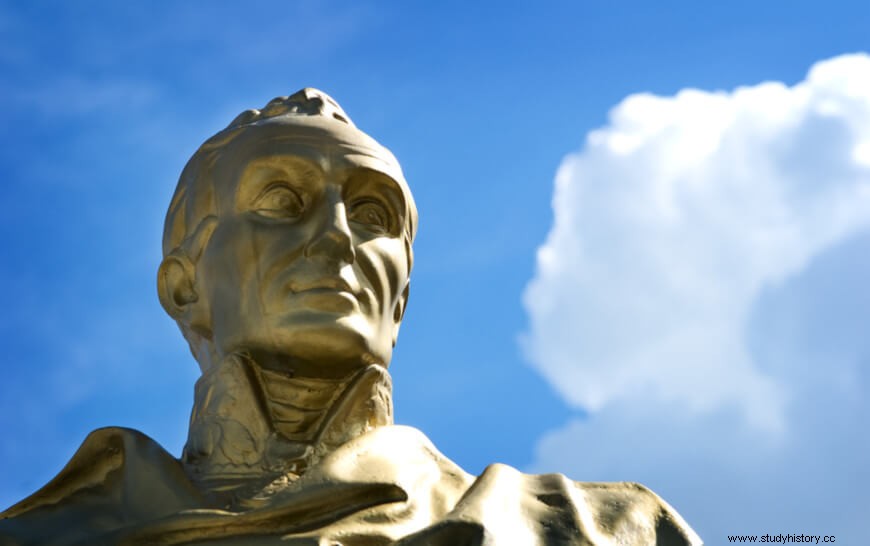
By Rainer Sousa
Eric Hobsbawn, a well-known historian of the 20th century, was the author of an interesting work in which he publishes several articles that discuss the genesis of some traditions. In his view, several of the manifestations that seek to define the identity of a particular culture arise from interests responsible for the choice of signs, rituals and narratives that perpetuate a vision of the past. In many situations, an “invented tradition” becomes a “truth”.
One of the most recent and famous cases of invented tradition has been developing in Latin America, under the tutelage of Venezuelan President Hugo Chávez. Being a controversial political leader and the target of numerous criticisms, Chávez often legitimizes a significant portion of his political acts with the realization of a speech that is based on old political categories that recall the times of the Cold War. Among other points, the fight against imperialism is an easy expression of his statements.
The concern to show himself as a defender of the autonomy of Latin America or a militant against the interests of the richest and most influential nations comes to shape another understanding of history. On several occasions, the Venezuelan president points to Simon Bolivar as his great political reference. In a way, he seeks to consolidate the idea that his perspectives are based on demands that refer to the deeds of the late revolutionary hero.
However, Hugo Chávez does not seem satisfied with the mere participation of Bolívar in several independence processes of the American continent. This is because all the heroic tone that involves the political trajectory of this historical character was not crowned with an epic ending. In other words, after defeating so many enemies and participating in so many battles, the Venezuelan revolutionary leader ended up being struck down by the storms of tuberculosis.
Doubting that the hero of the past had died of natural causes, the current president of Venezuela decided to make possible a process of exhumation of the body of Simon Bolivar. The strange decision is based on the distrust that the head of state has about the real circumstances of the death of his beloved national hero. Chávez and other members of his government suspect that the memorable “liberator of the Americas” was the victim of an assassination planned by members of the local oligarchies.
The investigation seems to have no support that goes beyond Hugo Chávez's personal interests. In several of the writings that precede his death, Bolívar complains of several physical discomforts that would prove the contraction of tuberculosis. Even so, the commission of scientists supported by the Venezuelan government insists on talking about the existence of “secret documents” that would unmask the terrible plan devised by members of the British, Spanish and North American governments.
This is certainly an attempt to rewrite Latin American history from the perspective of interests that favor the logic of the Chavista regime. By proving the terrible murder, Chávez would conquer an irrefutable argument that the schemes of the imperialist powers were perpetuated in the history of his country. In addition, he would reinforce the idea that his heroic political role is also the target of persecution and lies that would be avoided with the extent of his presence in power.
